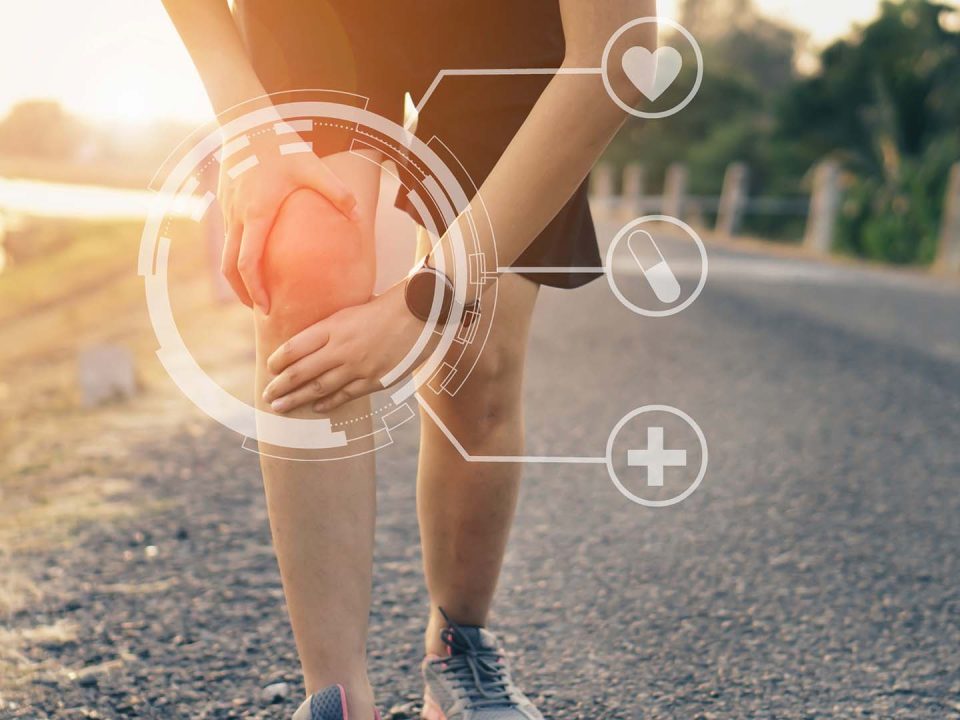Introduction
After my first half-marathon, I felt like I’d been hit by a truck. My muscles were sore, and I could barely move. It was clear I needed to find a better way to recover. That's when I discovered the power of proper nutrition. It changed everything for me.
Eating the right foods helped my muscles heal faster and made me feel stronger. I want to share what I learned so you can recover better too. Let's dive in!
Key Nutrients for Muscle Recovery
Omega-3 Fatty Acids
Omega-3 fatty acids are amazing for reducing inflammation. They help your muscles recover faster. You can find them in chia seeds, fatty fish, and flax seeds. I remember adding more salmon to my diet. My muscle soreness decreased significantly.
B Vitamins
B vitamins are essential for muscle repair. They help your body use protein to build new muscle cells. A complete B-complex supplement can be very beneficial. After I started taking a B-complex, my recovery time improved noticeably.
Vitamin A
Vitamin A helps reduce inflammation and protects your muscles. It’s also necessary for protein synthesis. Foods like butternut squash are rich in Vitamin A. I added more of these veggies to my meals and felt a difference in my muscle recovery.
Zinc
Zinc is crucial for healing muscle tears. Pumpkin seeds are a great source. After including more zinc in my diet, I noticed quicker recovery from minor injuries.
CoQ10
CoQ10 is an antioxidant that reduces muscle fatigue and pain. It also improves exercise performance. Foods like salmon and spinach are rich in CoQ10. I felt less tired after workouts when I included these foods in my diet.
Vitamin C
Vitamin C helps make muscles more resilient. It’s also an antioxidant. Citrus fruits, berries, and leafy greens are good sources. Eating more Vitamin C-rich foods sped up my recovery process.
Protein
Protein is essential for repairing muscle damage. You should consume 0.8-1.2 grams of protein per kilogram of body weight after exercise. I started having a protein shake right after my workouts. The difference was incredible.
These nutrients have made a huge impact on my muscle recovery. They can do the same for you. Remember, proper nutrition is key to faster and better recovery.
Timing of Nutritional Intake
Timing your nutrition right after exercise can make a big difference in how quickly you recover. I learned this the hard way after a particularly grueling workout.
Within 1 hour post-exercise: Eating a balanced meal or snack within an hour after working out is crucial. I remember one time I felt completely drained after a long run. I ate a snack with both protein and carbs right away. The next day, I felt much better than usual. It was like my muscles thanked me for the quick refuel.
First 2-4 hours: This period is all about getting enough carbs. I used to skip this part, thinking it wasn't important. But when I started eating more carbs in the first few hours after my workouts, my energy levels soared. I felt less tired and more ready for my next session.
Immediate Post-Workout: Right after you finish exercising, it's a good idea to have something with both protein and carbs. This helps refill your energy stores and starts the muscle repair process. I noticed that when I had a protein shake right after lifting weights, my muscles were less sore the next day.
Incorporating these timing strategies into your routine can really help with muscle recovery. Give it a try and see how your body responds. For more detailed information on muscle recovery, check out Healthline's guide.
Impact of Protein Intake
Protein is essential for muscle recovery. After a tough workout, your muscles need protein to repair and grow. I remember my first intense gym session. I was sore for days. A friend suggested I try a protein shake right after my workouts. I was skeptical but gave it a shot.
The difference was amazing. My muscles felt less sore, and I recovered faster. This is because protein helps repair the tiny tears in your muscles caused by exercise. High-protein meals or supplements can make a big difference.
Pre-workout protein is also helpful. Eating a small protein-rich snack before exercising can boost your recovery. I started having a protein bar before my workouts. I noticed I felt stronger and less fatigued afterward.
There are different types of protein. Whey, soy, and casein are popular choices. I experimented with each to see what worked best for me. Whey protein seemed to help the most. It’s quickly absorbed and perfect for post-workout recovery.
Incorporating protein into your diet can transform your fitness journey. It did for me. Try adding more protein to your meals and snacks. You’ll likely see a difference in your muscle recovery and overall performance.
Supplements for Muscle Recovery
Coenzyme Q10 (CoQ10)
CoQ10 is a powerful antioxidant. It helps reduce muscle fatigue and pain. I started taking CoQ10 after intense workouts. The difference was noticeable. My muscles felt less tired, and I recovered faster. Adding salmon and spinach to my diet also helped.
Creatine Monohydrate
Creatine is well-known in the fitness world. It boosts muscular strength when combined with resistance training. I began with a daily dose of 3-5 grams. Over time, I saw significant strength gains. My workouts became more effective, and recovery improved.
Vitamin D
Vitamin D is crucial for muscle health. It helps reduce inflammation. I noticed better muscle recovery after ensuring adequate vitamin D levels. Sunlight exposure and foods like fortified milk made a big difference.
Glutamine
Glutamine supports muscle growth and repair. It helps maintain a muscle anabolic state. I started taking glutamine supplements post-workout. The results were clear. My muscles recovered faster, and I felt less sore.
Age and Training History
Age plays a big role in how quickly you recover from workouts. As we get older, our bodies need more time to heal. This is because muscle mass naturally decreases with age. To combat this, older adults should focus on getting enough protein, vitamins, and minerals. I've noticed that adding more protein to my diet has helped me maintain muscle mass. Supplements like vitamin D and omega-3 fatty acids can also be beneficial.
Younger athletes, on the other hand, usually bounce back faster. But that doesn't mean they can ignore nutrition. A balanced diet rich in proteins, carbohydrates, and essential nutrients is key. When I was younger, I found that eating more protein helped me recover faster after intense workouts. Tailoring your nutrition to your specific needs can make a big difference, no matter your age.
For older adults, it's crucial to adjust your diet to support muscle recovery. This might mean increasing your protein intake or adding specific supplements. Younger athletes should also pay attention to their nutritional needs. Even though they recover faster, a well-balanced diet can enhance their performance and recovery.
In summary, age affects how quickly you recover from exercise. Older adults may need more time and specific nutrients to aid recovery. Younger athletes should focus on a balanced diet to support their quicker recovery rates.
Additional Recovery Strategies
Rest and Sleep
Rest and sleep are crucial. Your body needs time to repair itself. After a tough workout, aim for 8-10 hours of sleep. I noticed a huge difference when I started prioritizing sleep. My muscles felt less sore, and I had more energy for my next workout. Trust me, your body will thank you.
Hydration
Staying hydrated is key. Water helps your muscles recover faster. I used to forget to drink enough water. Once I made hydration a priority, my recovery improved. I felt less tired and my muscles were less stiff. Make sure you drink plenty of water before, during, and after exercise.
Compression Tights and Massage
Compression tights and massages can help too. They reduce muscle soreness and improve blood flow. I started using compression tights after long runs. They made a big difference in how my legs felt the next day. Massages also helped me relax and recover faster. Combining these with good nutrition gave me the best results.
General Recovery Processes
Muscle recovery is a complex process. When you exercise, your muscles experience tiny tears. This is called muscle damage. It leads to inflammation, which can cause soreness. Proper nutrition can help reduce this inflammation. Omega-3 fatty acids and vitamins A and C are great for this.
Protein synthesis is another key part of recovery. Your body uses protein to repair and build muscle. Eating protein-rich foods helps speed up this process. Aim to consume protein soon after your workout for the best results.
Glycogen replenishment is also important. Glycogen is the energy stored in your muscles. After a workout, your glycogen levels drop. Eating carbohydrates helps refill these stores. This gives you the energy you need for your next workout.
Antioxidant defense is crucial too. Exercise creates oxidative stress, which can damage your muscles. Antioxidants like CoQ10, vitamins C and E, and polyphenols help fight this. They reduce muscle damage and speed up recovery.
By focusing on these nutritional strategies, you can enhance your muscle recovery. This helps you feel better and perform better in your workouts. For more detailed information, check out these sources:
Conclusion
Reflecting on my journey, proper nutrition has been a game-changer for muscle recovery. I remember those days of constant soreness and fatigue. It felt like I was hitting a wall. But then, I started paying attention to what I ate. The difference was incredible.
Incorporating key nutrients like omega-3s, B vitamins, and protein made a huge impact. I felt less sore and more energized. Timing my meals and snacks around workouts also helped. Eating within that crucial one-hour window sped up my recovery.
I encourage you to prioritize your nutrition. It’s not just about eating healthy; it’s about eating smart. Focus on the right nutrients and timing. You’ll notice the change in your recovery and overall well-being.
Start today. Experiment with these strategies and see what works best for you. Share your experiences and let’s grow together on this fitness journey.





